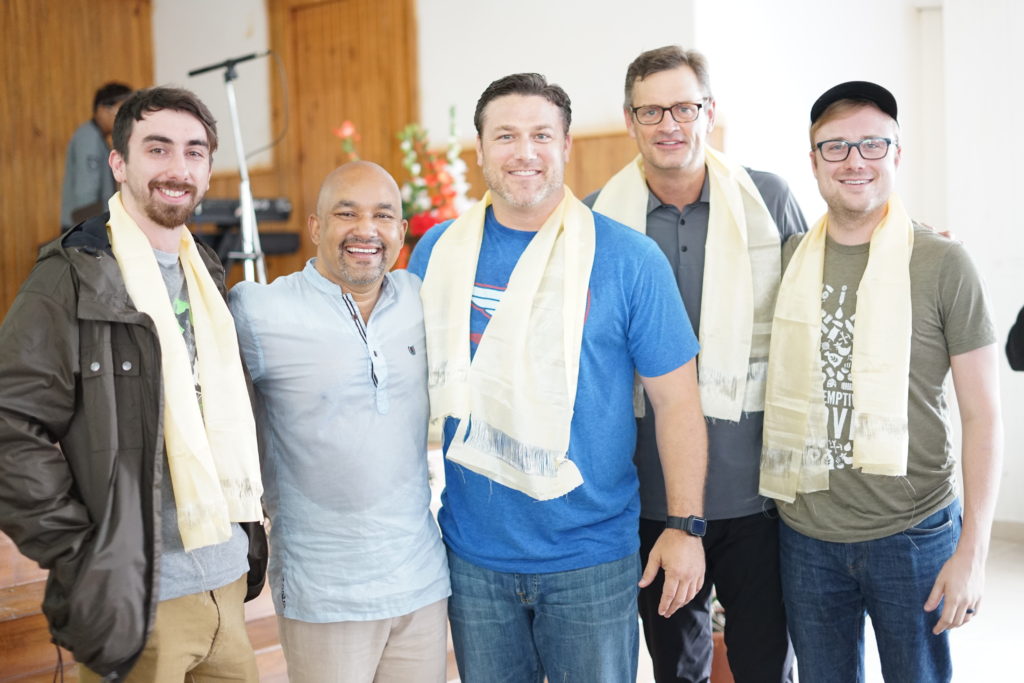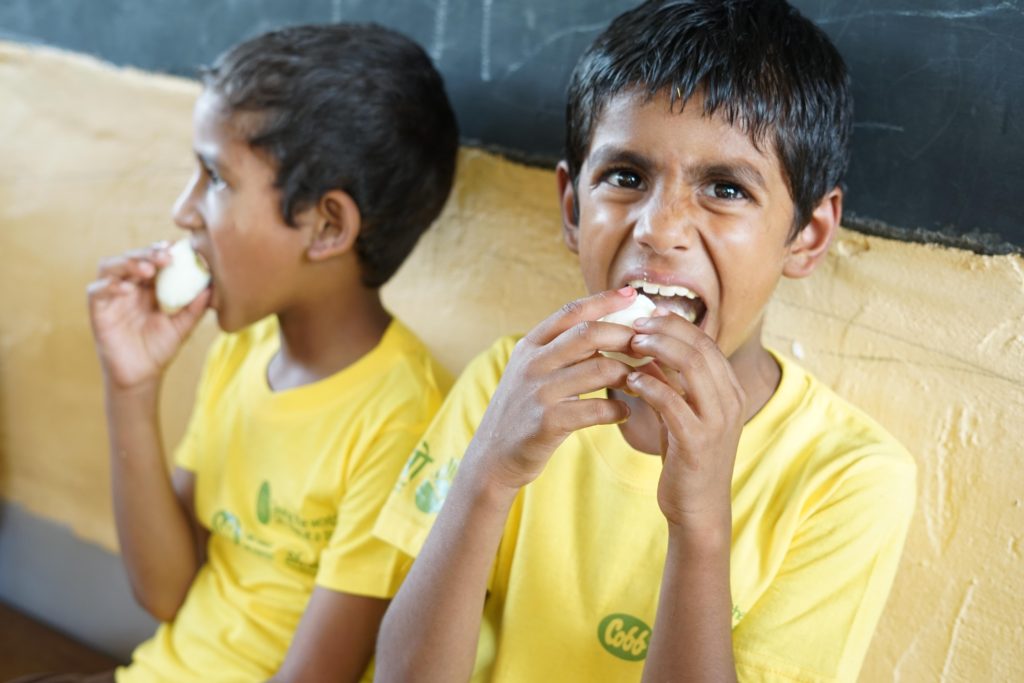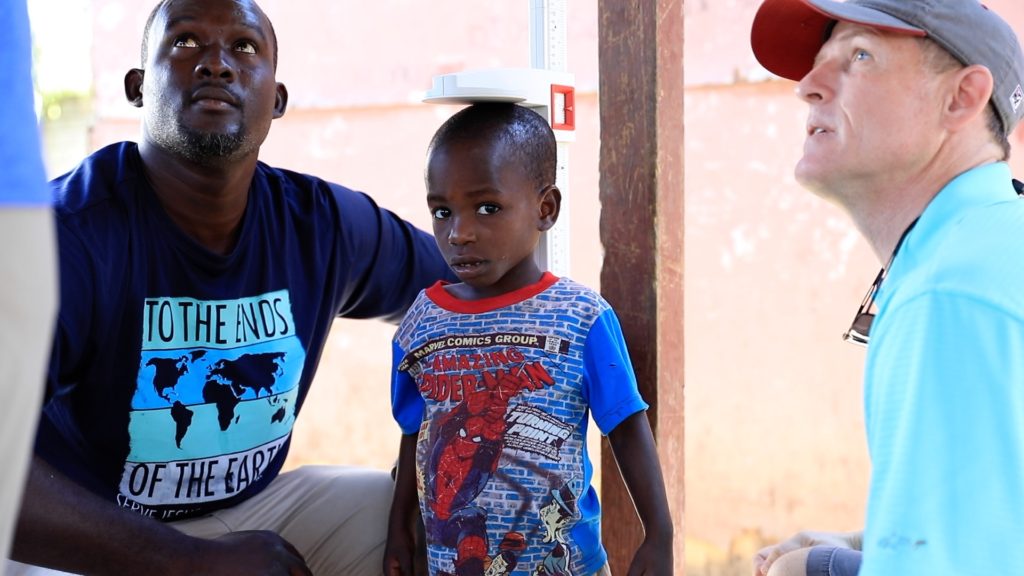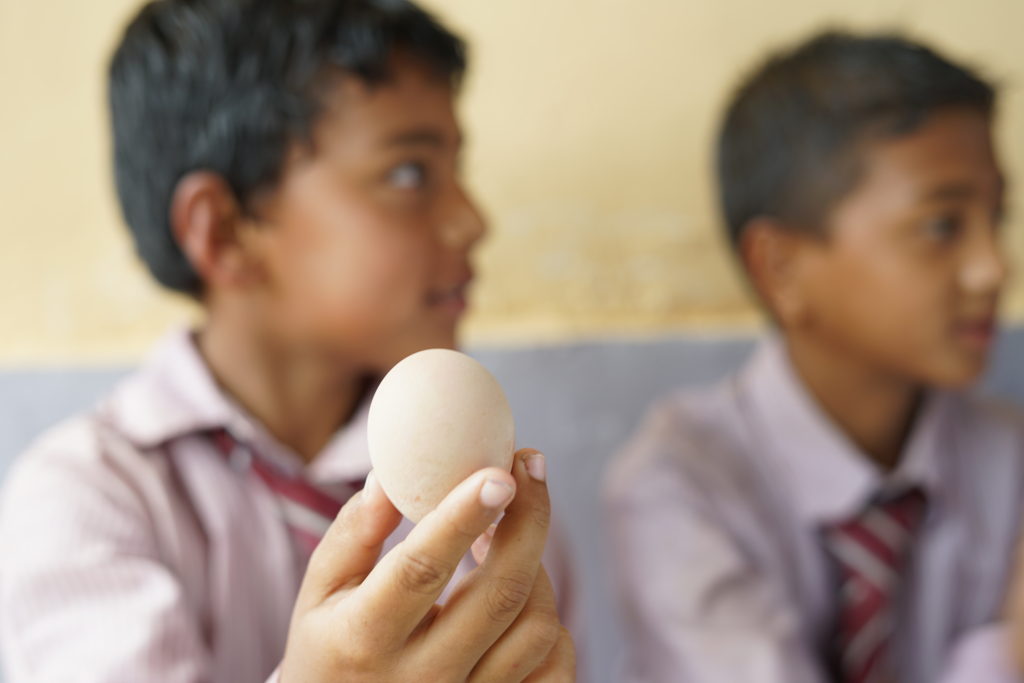My Q&A with Chris Ordway, Executive Director of OneEgg
Choline. Selenium. Riboflavin. Vitamin D. Phosphorus. Vitamin B12. Pantothenic Acid. Folate. Iron. Vitamin A. Vitamin B6. Zinc. Calcium. Lutein. Zeaxanthin.
No, I’m not listing off what my doctor recommended to increase in my diet.
I’m talking about all the nutrients that can be found in just one egg.
Last year, the U.S. produced more than 95 billion table eggs last year, and we ate it up—literally—as we consumed about 275 eggs per capita.
While we can find these pint-sized snacks packed with high-quality protein in nearly every supermarket or convenience store around the corner, animal protein is not as easily accessible in other places around the world, and in some instances, cost poses yet another barrier.
That’s where OneEgg steps in.
OneEgg was founded with the mission to deliver much-needed animal protein to children in the most vulnerable parts of the world. With Tyson Foods and Cobb-Vantress as partners from the beginning, what started as one farm with four chicken houses in Rwanda has expanded to 10 OneEgg chapters feeding more than 10,000 children across Africa, Asia and South America.
I recently had the chance to sit down with Chris Ordway, Executive Director of OneEgg, to talk about the impact of OneEgg beyond the numbers.

So Chris, tell me a little bit about how you got involved with OneEgg?
CHRIS: In 2011, I was working in Rwanda when I met some of the incredible people behind the vision of OneEgg.
In America, we never think about the fact that kids around the world don’t get animal protein. The kids in Rwanda weren’t starving, but they were living off beans, cassava—which is this ridiculously bad root people eat that basically has no nutritional value—and sugarcane. That’s really it.
I found something really special about the kids in Rwanda, and I was compelled to explore that feeling. Since then, I’ve been working with OneEgg to fulfill our mission: “more eggs to more kids.”
What does the OneEgg model look like from set-up to operation?
CHRIS: The concept is to create a sustainable farm where protein doesn’t exist. We build the farm, train local people to run the farm and be accountable for profits, and then use those profits to provide eggs to kids. In instances where suppliers already exist, we work to train those farmers with our standards in poultry science and farm operations.
Tyson and Cobb are crucial partners, because they provide us with the technical assistance to get the farm up and running and maintain operations through the Tyson Foods Fellows—a small group of experts in poultry farming. They empower local workers with the skills to efficiently run the farm and own the outcome.

From there, we partner with schools and orphanages to deliver eggs to children from the farms we’ve built or partnered with. We buy the eggs at a fair price for what we know is a high-quality product.
So the benefits to the community are two-fold: we’re providing eggs to kids, and we’re also creating jobs or patronizing established farms to stimulate the local economy.
You have the opportunity to travel to all the chapters around the world and see the operation in action. What’s it like to see the impact of OneEgg first-hand?
CHRIS: Each chapter is unique, but one thing that’s the same across the board is the reaction from the kids.
For some of them, this is their first time ever eating animal protein. It’s crazy to try to explain it to someone who hasn’t seen it. I like to compare it to the first time you tried a candy bar. There’s something in your body that just reacts to that combination of fat and sugar and salt. There’s a reaction like that when these kids eat an egg for the first time—experiencing that helping of protein and those nutrients they aren’t used to having.
If you’ve been there for two or three weeks, you literally see their faces clear up. And their eyes are brighter, and their noses aren’t running, and the teachers will tell you the energy level is entirely different. These kids never miss school because they know they’ll get an egg.
What excites you about the future of OneEgg?
CHRIS: With the Honduras Outreach Initiative (HOI) we’ve developed a pilot nutrition program—First 1,000 Days—to provide eggs to pregnant women and their families with the goal of studying the impact on cognitive and physical development within the first 1,000 days of the child’s life.

We’ve seen the research, and we know that one of the most crucial cognitive development periods for a child is in the last trimester of pregnancy and the first two years of life. So what happens when we give the mother much-needed protein during her pregnancy and continue to provide eggs for her and her family—including her new baby?
While we’re in the initial stages, we’re excited to track the impact of animal protein on these women and their babies to contribute to the wealth of research out there about the benefits of eggs.
Our first First 1,000 Days baby was actually born in November2018—Jefferson Manuel Nohemí.
This program is just another layer to our mission: more eggs to more kids!
I’m ready to write a check, Chris—or does OneEgg take Venmo? How can we donate to help get more eggs to more kids?
CHRIS: One of the things OneEgg takes pride in being a super lean organization with little to no overhead. I feel like now more than ever, there’s a lot of concern around the transparency of non-profits in terms of how they use donations. I can say with absolute confidence that your donation will not be used for advertising or marketing or any other operational function—100% of what you give will go toward providing more eggs to more kids, and we plan to keep it that way.
Check out Tyson’s OneEgg partnership in action in Haiti and Nepal.







0 Comments
Leave A Comment